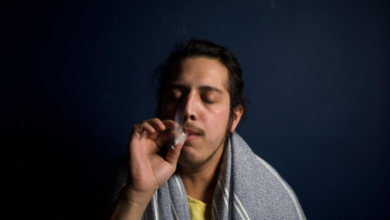The legal status of CBD in Sweden presents a complex landscape. While products derived from industrial hemp with under 0.2% THC are permitted, the nuances between full-spectrum and isolate CBD can lead to regulatory challenges. Businesses and consumers alike must navigate this intricate framework to ensure compliance. Understanding these legal distinctions is crucial for those interested in the use or sale of CBD within the country. What implications do these regulations have for the market?
Overview of CBD and Its Sources
Cannabidiol, commonly known as CBD, is a compound derived from the cannabis plant, specifically from varieties classified as hemp.
CBD benefits include potential relief from anxiety, inflammation, and pain, attracting significant interest from consumers seeking natural alternatives.
Hemp sources are vital for CBD extraction, providing a rich supply of this non-psychoactive compound, which is increasingly recognized for its therapeutic properties in various wellness applications.
Legal Status of CBD in Sweden
While many countries have begun to embrace the use of CBD, its legal status in Sweden remains complex and multifaceted.
Various CBD types, such as full-spectrum and isolate, present different legality implications.
The distinction between THC-free products and those containing THC further complicates the landscape, necessitating careful consideration by consumers and businesses alike regarding compliance and potential legal consequences in Sweden.
Regulations on CBD Products
Although the legal status of CBD in Sweden is intricate, the regulations governing CBD products are primarily shaped by European Union directives and national legislation.
CBD regulations emphasize product compliance, requiring that products contain less than 0.2% THC.
Furthermore, only CBD derived from industrial hemp is permitted, ensuring that consumers have access to safe and regulated options that align with broader EU standards.
Consumer Considerations and Safety
With the regulatory framework established, consumers in Sweden must consider several factors when choosing CBD products.
Key considerations include the reported health benefits and adherence to dosage guidelines to ensure safe usage.
Consumers should also verify product sourcing and quality, as variations can impact efficacy.
A thorough understanding of these factors empowers individuals to make informed choices in their pursuit of wellness.
Conclusion
In Sweden, the legal landscape of CBD presents a duality; while the substance itself enjoys a degree of acceptance, the regulatory complexities surrounding its source and formulation evoke caution. Full-spectrum products, despite their potential benefits, tread a fine line with THC restrictions, contrasting sharply with the clarity offered by isolate options. This juxtaposition underscores the necessity for consumers and businesses alike to navigate the intricacies of compliance diligently, ensuring that safety and quality remain paramount in the evolving CBD market.





